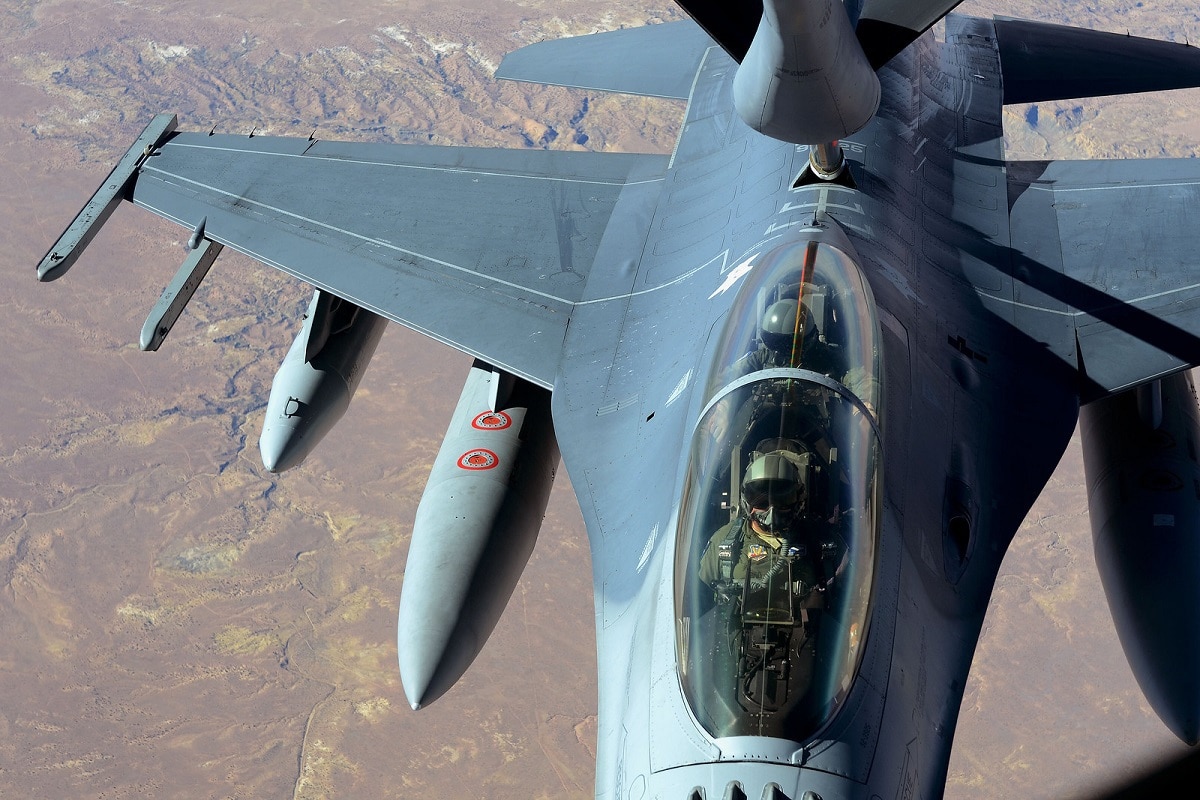Amid high U.S.-China tensions, Washington would be wise to follow a prudent and non-escalatory Taiwan policy. A recent Taiwan Strait crossing by a U.S. Navy guided-missile destroyer is but the latest example in how delicate the situation is, with a spokesman for China’s Eastern Theatre Command stating, “The U.S. actions sends the wrong signals to Taiwan independence forces, deliberately disrupting the regional situation and endangering peace and stability across the Taiwan Strait”. All eyes are fixed on China but Washington should keep in mind the risks and stakes at play.
Taiwan is a self-governing island democracy. Beijing maintains Taiwan is a renegade province and an inseparable holding of the PRC, refusing to rule out the use of force to compel reunification if necessary.
Strategic ambiguity defines the U.S. stance on its security guarantees toward Taiwan and has so far deterred a formal declaration of Taiwanese independence as well as deterred Beijing from unilaterally solving the dispute via force. Ambiguity has been tested at times in the past but has nonetheless endured for over four decades. Despite its remarkable durability, Washington has changed course in recent years and inched away from ambiguity.
Between 2017-2020 the Trump Administration formally rejected the “One China” Principle thereby rejecting the ideological basis for reunification, called for a defense strategy obligating U.S. regional combat power to defend Taiwan and other nations within the first island chain in the U.S. Strategic Framework for the Indo-Pacific, and defined Taiwan as an essential element to its Indo-Pacific Strategy. These actions in sum fall short of an explicit pledge to defend Taiwan from an invasion, but certainly leave fewer questions about how the U.S. might respond to one. Worse still, the Biden team has signaled its intent to continue down this confrontational path.
The stated goal of U.S. Taiwan policy is to “maintain peace and stability”, not to proactively commit U.S. military power to an avoidable conflict. The U.S. mission under the Taiwan Relations Act (TRA), which guides U.S.-Taiwan informal ties, is inherently defensive.
Straying from ambiguity stretches the scope of the TRA and risks escalation. Washington is in the middle ground, attempting to deter a Chinese invasion and simultaneously deter Taipei from officially declaring independence. Strategic ambiguity’s fragility offers little space for adjustment without the risk of being perceived as escalatory by Beijing. As Defense Priorities Fellow Mike Sweeny notes, uncontrollable escalation could lead to a nuclear exchange over Taiwan.
Defending Taiwan practically means defending ambiguity. Both the U.S. and China wield the power to unilaterally solve the dispute but have instead preferred the status quo of ambiguity for over 40 years. Washington’s partial exodus from ambiguity provoked a military harassment campaign to signal deterrence against Taiwanese independence. The U.S.’ embracement of Taiwan during a period of increased confrontation with the PRC reads to Beijing as threatening to the status quo. Conversely, Xi Jinping’s willingness to use force against “separatists” in a vague reference to pro-independence factions on Taiwan also reads a threat to the status quo in Washington. The U.S. must restrain its drift away from ambiguity to preserve stability in the face of these divergent perspectives. Even if the U.S. switched to a formal recognition of Taiwan, the island would not magically become safer as a result. Rather, Washington would have to invest even more resources into protecting the island from a vengeful China.
Chinese plans to encircle Taiwan would undoubtedly disrupt the status quo, but that doesn’t necessarily mean the U.S. should throw its own military at the problem. Taiwan can defend itself…sort of. Absent U.S. support, Taiwan’s geography makes a formidable target for invasion by sea. A 2020 Department of Defense assessment leans in favor of Taipei noting the PRC is not investing sufficient funds into amphibious lift capabilities required to achieve a contested landing.
The air domain, however, is less flattering. Recent Chinese provocations toward Taiwan primarily have been with People’s Liberation Army Air Force (PLAAF) fighters and bombers. Persistent aerial crossings of the median line indicate the PLAAF’s ability to inflict military costs from the air at a moment’s notice. China’s overmatched air power would be a critical element in Beijing’s ability to speedily seize Taiwan.
Washington should provide Taipei with additional mobile surface-to-air missile systems (SAMs) in an unmistakably defensive overture compliant with the TRA. A 2016 RAND study suggests Taiwan needs 40 air defense platoons to repel a Chinese air campaign requiring $8.1-9.2 billion. U.S. arms sales to Taiwan in 2020 totaled $5 billion. Funds could easily be spread over a period of several years to work around Congressional budgetary constraints. Mobile SAMs are also highly survivable and help undercut Beijing’s conventional air strengths without touching the sensitive political aspects of the U.S.-Taiwan relationship or risking American lives.
Preserving peace and stability means picking battles wisely and exercising restraint. Washington should resist straying from strategic ambiguity to ensure Taiwan’s continued safety and to prevent signing the U.S. military up for a completely avoidable conflict. The U.S. ought to live within the existing framework of the TRA and help Taiwan bolster its deterrence capabilities where appropriate to preserve the status quo and mitigate escalation risks.
Ryan Bercaw is an undergraduate International Studies major at American University in Washington D.C. He has served six years in the U.S. Intelligence Community as an all-source analyst for the Marine Corps and Defense Intelligence Agency. His work has appeared in the Marine Corps Gazette.

